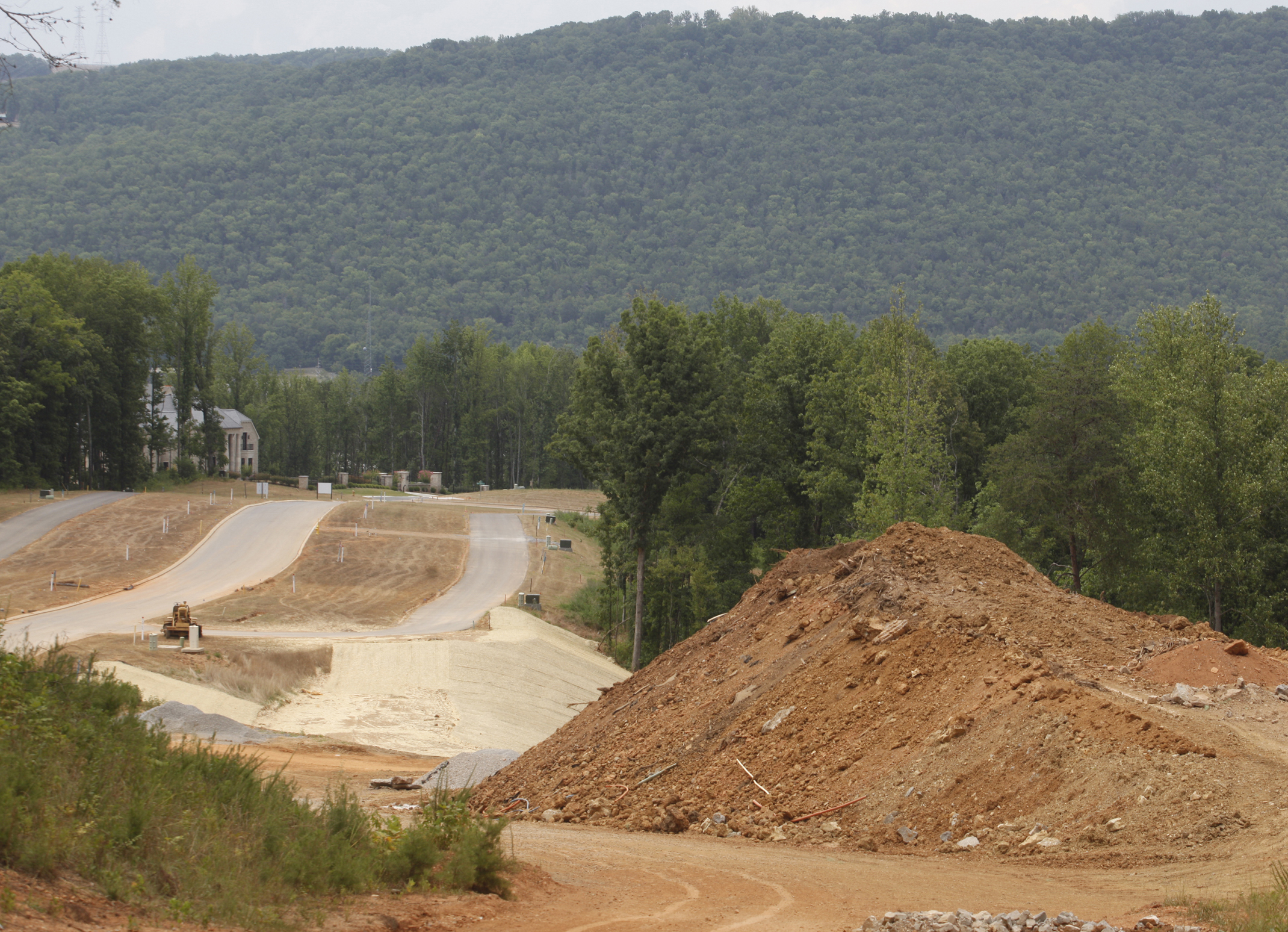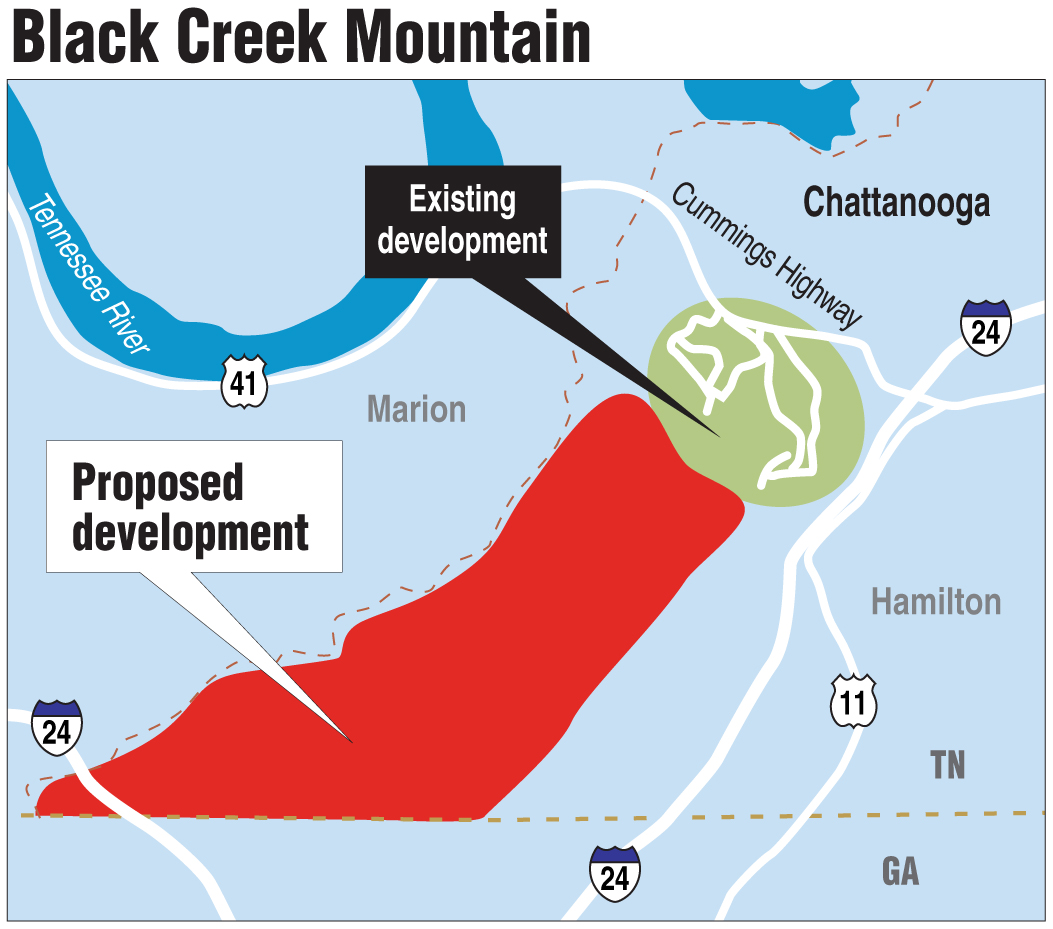A final effort to block taxpayer financing for a planned road up Aetna Mountain failed Monday, despite organized opposition by a group that included government watchdogs, developers, a planner and a politician.
The new Aetna Mountain road will replace the poorly maintained existing road and will mark the first use of tax increment financing, or TIF, in the Chattanooga area if it receives final approval.
That approval, however, comes with a caveat.
The city's Industrial Development Board required developers first to secure a legal opinion from either the Tennessee attorney general or from public finance attorney George Masterson, which must defend the legal basis for approval under the Tennessee TIF statute.
Objections at the unusually lively meeting ranged from the legality of the financing plan to the apparent renaming of Aetna Mountain to Black Creek Mountain.
But the panel voted 5-1 conditionally to approve a $9 million bond for the Black Creek Mountain development in western Hamilton County, doing so under Tennessee's TIF guidelines.
Board member Ric Ebersole called the tentative approval a "belt and suspenders approach" that protects taxpayers while still allowing the development to proceed if the city receives an "unqualified" legal opinion.
"The question in my mind is whether or not this meets the definition of a [legally defined] project," Ebersole said.
City Councilwoman Deborah Scott spoke out strongly against the plan, which she sees as subsidizing a mountain neighborhood in a city that already has more housing than it needs.
"Normally, a bank would provide developer financing for a subdivision like this," Scott said. "The existing taxpayers who also have infrastructure needs do not want to pay infrastructure taxes for residents who are not here yet."
Mike Mallen, attorney and spokesman for developers, took issue with some of the criticism of the project, which has been in the works since 2010.
"I understand that Councilwoman Scott is not happy she was on the losing end of a vote," Mallen said, referring to Scott's opposition to the project in City Council meetings.
Mallen called many questions "moot," since elected officials already have voted through six public meetings.
He also called into question the credibility of a former planning official, who had been a key opponent of the project.
Helen Burns Sharp last week called for tighter controls and more specific promises from developers in exchange for taxpayer help with the project.
But on Monday, Mallen distributed a news report from 1989 where Sharp appeared to contradict herself. In it, she told Georgia officials that it's difficult to project where schools, fire stations or police precincts will be needed in 10 years because population trends cannot be predicted accurately, according to the Atlanta Journal Constitution.
"She has totally contradicted herself," Mallen said.
Through more than an hour of discussion, board members remained unconvinced that they had any power to overturn the green light given by the Hamilton County Commission and Chattanooga City Council.
"If we get one of those two opinions, we'll finalize the documents and sign them," said city attorney Mike McMahan.
The new project ultimately will envelop about 1,500 of the 3,000 acres on top of Aetna Mountain, and could spur up to $500 million of development.
The development is expected to create what amounts to a new city on top of Aetna mountain -- which is currently a four-wheeling playground for outdoor enthusiasts. The remaining undeveloped land will be split up into trusts for preservation.
If the deal goes through, developers expect to put up the initial $9 million for the 1.5-mile road, then pay themselves back over the next 13 years with tax revenues over and above the current payments made by area landowners.
Local governments will retain the money used for schools and debt service, and developers have agreed to give back a 5 percent administrative fee and pay the cost of local garbage and brush collection for the 20-year life of the bond.
If the project succeeds and new taxpayers move to the area, the developer could be fully paid back in 13 years. If the project fails, only the developer loses money, officials say.
Though other taxpayers in the county and city ultimately will subsidize police and fire services for the Aetna Mountain area until the road is fully paid off, Chattanooga Police Chief Bobby Dodd said he didn't expect the high-end development to be a burden.
"It's not going to be much of a drain on the police department," Dodd said.
Contact staff writer Ellis Smith at esmith@timesfreepress.com or 423-757-6315.

